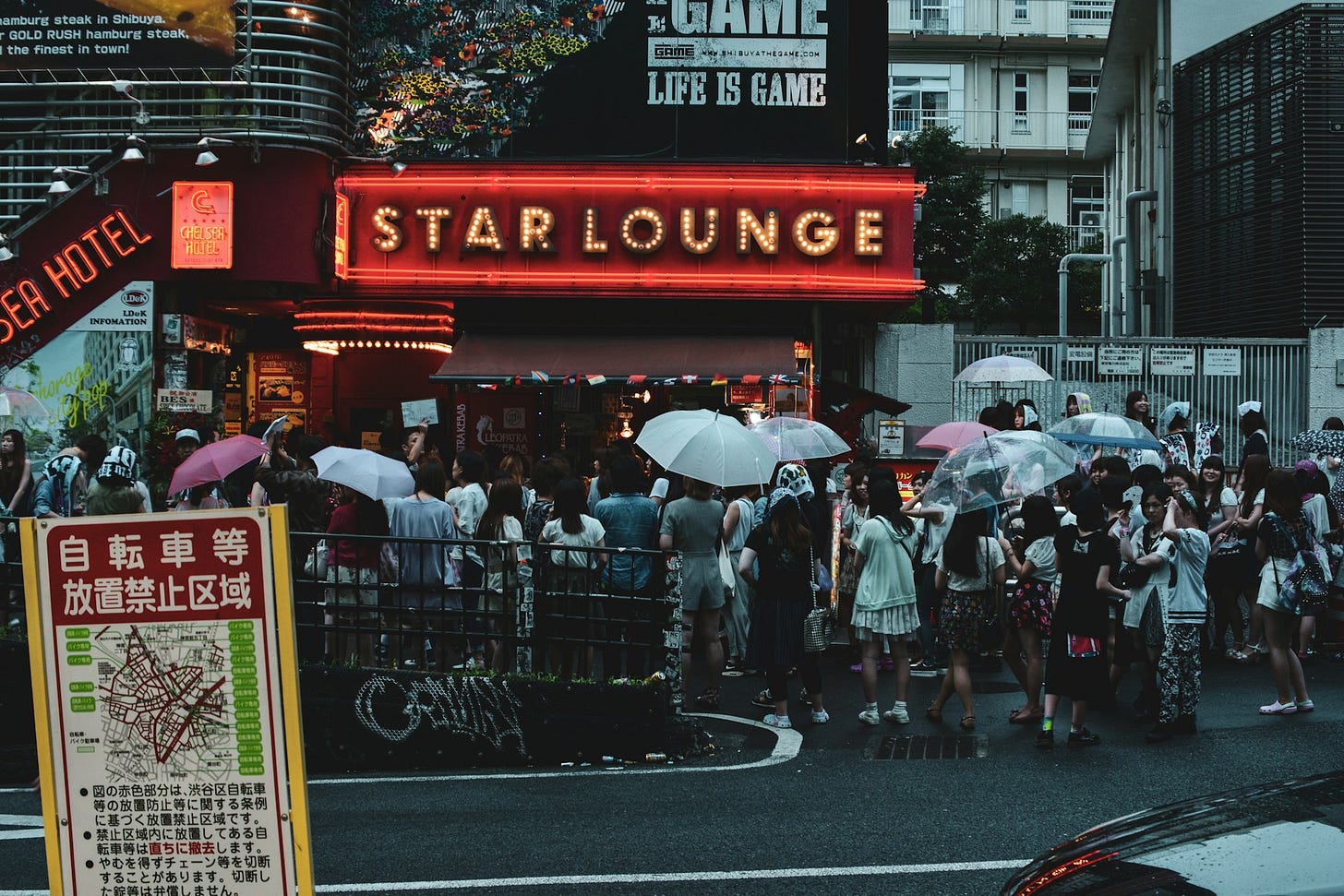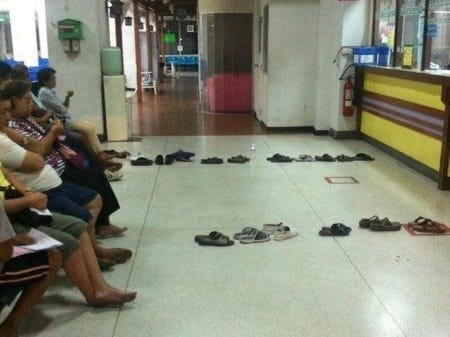Queuing Culture, Japan & China, then a Theological Reflection about Culture
The combination of the most random subject matters ever.

Japan is the pinnacle of human order, civility, and politeness.
How did I ascertain this deep, noble, and profound truth?
It's because I've queued in Japan.
Queuing Culture
You know. You can tell a lot about the culture of a country by the way people queue.
In Malaysia, I once queued to renew my passport. I brought my pink chair to the immigration office at 6:30 and waited for 2+ hours to get in line. Even at that time, I was not the first one there…. And I wasn't the only one that brought a chair.
In Mexico, people carry foldable fans to brace the heat of the weather.
In India, people queue up so close to one another that personal space is non-existent.
Then in Thailand. People use sandals to queue.

I've visited some countries, but no country has the queues like Japan.
It is clean.
It is orderly.
It might be the best representation of queuing until we wait at the gates of heaven! (Get it? Because we would have to queue there! 🤣)
My Queuing Story in China
But in China, my goodness, it’s an entirely different story.
When we were checking in our luggages for our flight from Malaysia to China (So not even in China yet), a Chinese National tried to cut queue in front of me. At first, I gave him that "What-are-you-doing!?" kind of look, it's the nonverbal cue you give to somebody before you make things awkward by speaking.
The guy ignored it.
I then had to explicitly say: "Excuse me, sir. The queue is back there".
He then only proceeded to get back behind the queue. I was appalled.
Another example is Shanghai Disneyland. Disney intentionally created narrow, single-person queue lanes so that people could not cut ahead of each other. Hence mitigating this queue-cutting culture.
Now, was this entire spiel just to indirectly talk bad about the culture in China without offending them?
😐😐😐
Sort of.
But… I don't think the Chinese nationals would disagree with me either.
During my trip, I was with one of the Pastor’s kid. We were touring around the chocolate museum and I was trying to find the exit. We could not exit through the way we entered, so I was frantically going up and down searching for the proper exit. (As always, tourist traps are meant to be as confusing for you to remain inside)
So after 5 minutes, I gave up and approached my friend. He then smiled at me and said as a matter of fact: "This is China, we are supposed to break the rules". He then led me to the entrance, and then we walked through the way we came in. As we were exiting, there was a huge sign saying: “Do not exit here”.
My inner Japanese felt shame and only shame.
Much can be said about the chaos, queue-cutting, and rule-disobeying culture in China. But I think there’s a solid cultural explanation for it.
In the 1950s and 1960s was the Great Leap Forward where millions of Chinese people died.
Coming from that generation, people had to fight to survive. You had to think for yourself, or else you and your family would starve. This is the culture that people grew up in thus creating their mindset. Remember that the boom in the Chinese economy is only fairly recent. The economic situation has changed, but the mindset hasn’t.
The Flipside
All the criticisms of Chinese culture are fair: Self-centered, rule-breaking, and less thought for others.
But here was an interesting realization.
These bad qualities are the exact qualities that have made the Chinese Underground Church so vibrant and successful.
China, according to open doors, is ranked 19 as the most intense persecution in the world for Christians. It has always been highly persecuted for many years.
I know this as a fact, but being there in person gives you perspective.
As I was spending time in the underground church in China. I hear stories of their persecution: getting caught by the police, the shutdown of the church, and the constant surveillance of the CCP. It is an antagonistic environment for the Christian Population.
Yet the underground church population in China is thriving. Unofficial estimates in China guesstimate that 5% to 7% of the population in China are Christians. Given the total population size of 1.4 billion people in China. 6% of Christians would make that a total population of 84 million people in China.
To give a bit of context, the population of Japan is 120.6 million people. The amount of Christians in China is almost the entire population of Japan!
Reflection on Culture
Which made me reflect a bit.
Rule breaker?
Well, they know how to break the rules of the government to gather in secret for worship and fellowship.
Scarcity mindset?
Well, they know how to use the resources wisely to ensure that the Church operates healthily with the most limited amount of resources.
Are the “bad” qualities even bad at all? Maybe it’s just another kind of cultural paradigm that is foreign to our background and makes us quick to judge.
I won’t go far to say that China’s culture is perfect (But which culture is?). Yet, there are redeemable and admirable qualities in it. The tenacity and the resiliency.
I’m reminded of the following passage in Revelation
After this I looked, and behold, a great multitude that no one could number, from every nation, from all tribes and peoples and languages, standing before the throne and before the Lamb, clothed in white robes, with palm branches in their hands.
Rev 7:9
John paints a picture that different cultures will be represented in heaven. The Kingdom of God is not meant to be Mono-cultural but rather Multi-cultural.
A common misunderstanding is that you would lose your cultural identity when you become a Christian.
I would argue that this is the opposite. Your cultural identity becomes refined. If you were Chinese, you would become a better Chinese. If you were Japanese, you would become a better Japanese.
All cultures will be redeemed at the end of the age. That is a beautiful picture.
Maybe at the gates of heaven, we might still be able to cut queues.
References and notes:
Waiting in line around the world.
Stats on Christian population in China vary. Multiple sources are indicating different amounts. I think 5% to 6% is a fair estimate.




I always wonder how would a foreigner comments on Malaysia culture, and now it's good to know some might have empathy perspective instead of criticism (isn't proud being Malaysian Chinese sometimes)😂😂
Good perspective on how China culture positively impacted their Christian activity, especially given the amount of bad press China people get outside China.
I myself have not considered such perspective before.